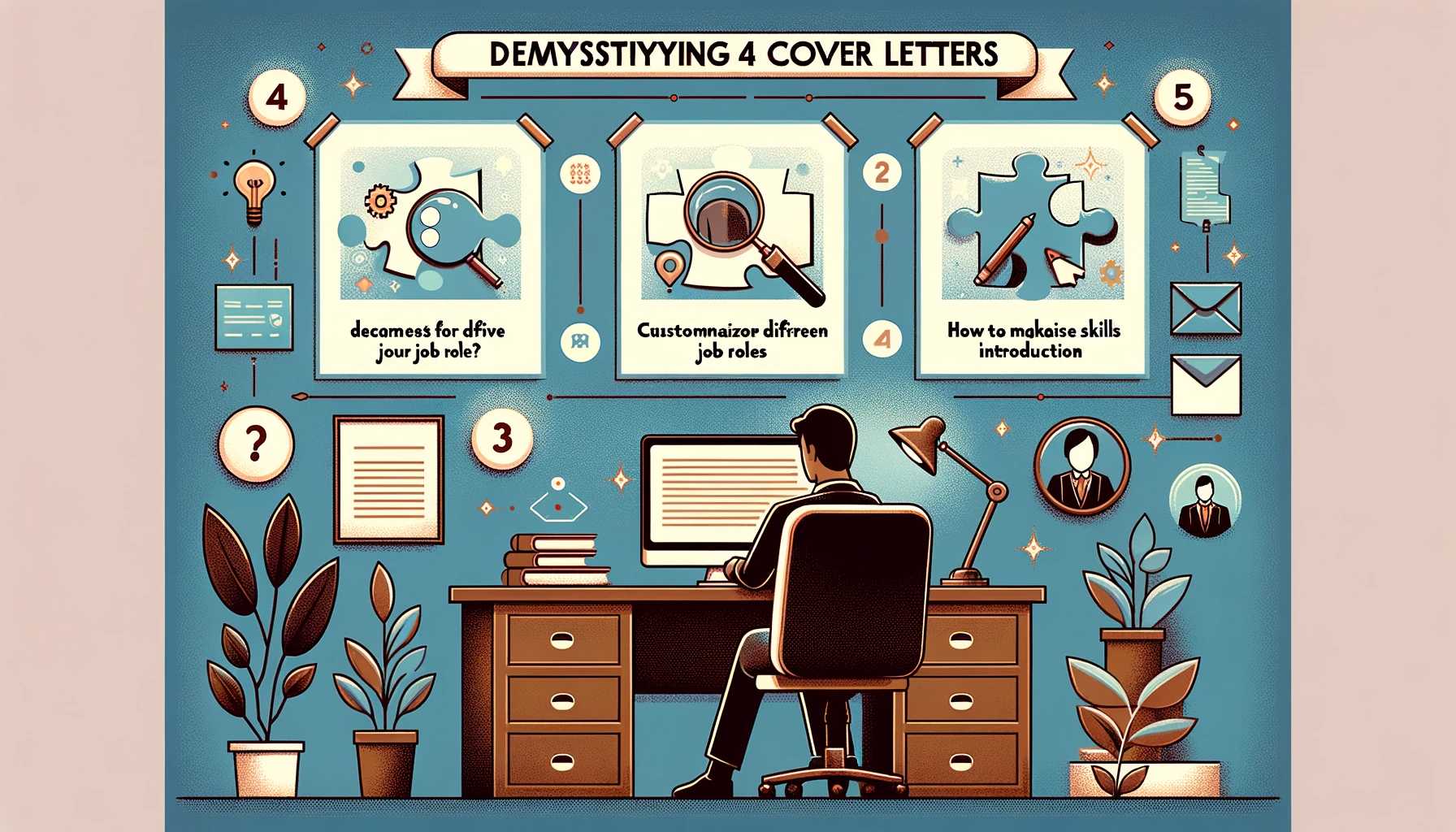Demystifying Cover Letters: Answering Four FAQs with Finesse
Hey there, job seekers and career enthusiasts! As you navigate the winding road of job applications, the elusive cover letter often stands as the gatekeeper between you and your dream job. Questions about crafting the perfect cover letter can feel like stumbling through a maze, but fear not! Today, let's demystify this crucial aspect of job hunting by tackling four frequently asked questions about cover letters. So, grab your favorite mug of coffee, get cozy, and let's dive into the world of cover letter wisdom.
1. Why are Cover Letters Still Relevant in 2024?
With the rise of applicant tracking systems and the digitalization of the job application process, the relevance of cover letters often comes into question. However, in 2024, cover letters remain a powerful tool for several reasons.
Firstly, they provide a platform to showcase your personality and storytelling skills. Your resume lists your qualifications, but the cover letter allows you to narrate your professional journey, giving employers a glimpse into the person behind the qualifications.
Secondly, cover letters allow you to tailor your application to a specific job. They provide an opportunity to align your skills and experiences with the requirements of the position, demonstrating a genuine interest in the role.
Lastly, a well-crafted cover letter sets you apart from the competition. In a sea of resumes, a thoughtful cover letter can catch the hiring manager's attention, making a compelling case for why you are the perfect fit for the job.
2. How Long Should My Cover Letter Be?
The perennial question: the Goldilocks dilemma of cover letter length. Too short, and it may lack substance; too long, and it risks losing the reader's interest. So, what's the sweet spot?
In 2024, the general consensus is to keep your cover letter concise and focused. Aim for three to four paragraphs, totaling around 250 to 400 words. This length is sufficient to convey your enthusiasm, highlight key experiences, and express your suitability for the role without overwhelming the reader.
Remember, hiring managers often sift through numerous applications, so brevity is your ally. Craft a cover letter that is compelling, yet leaves them eager to delve into your resume for more details.
3. Should I Include Personal Details in My Cover Letter?
The inclusion of personal details in a cover letter can be a delicate dance. While it's essential to infuse your personality into the narrative, certain personal details may be more relevant than others.
Consider incorporating personal details that directly relate to the job or showcase your values. For example, if you're applying for a position in a company with a strong commitment to community service, mentioning your volunteer work aligns with their values. On the other hand, sharing unrelated personal anecdotes might divert attention from your professional qualifications.
Strike a balance. Mention personal details that enhance your candidacy or highlight qualities that make you a great fit for the company culture. It's not just about sharing personal stories but about strategically choosing the right stories to strengthen your professional narrative.
4. How Can I Tailor My Cover Letter for Each Application?
Ah, the art of tailoring – a skill that transforms a generic cover letter into a powerful, job-specific document. Tailoring your cover letter for each application is not about reinventing the wheel; it's about customizing the existing vehicle to navigate the unique terrain of each job opportunity.
Start by thoroughly understanding the job description. Identify the key skills, qualifications, and responsibilities the employer is seeking. Then, align your experiences with these requirements. Highlight specific achievements that mirror the expectations outlined in the job posting.
Address the hiring manager by name whenever possible. If the name is not provided, do some research to find it. A personalized greeting adds a human touch and demonstrates your genuine interest in the position.
Express enthusiasm for the company. Reference recent achievements, projects, or initiatives to show that you've done your homework and are genuinely excited about contributing to their success.
Avoid generic statements that could apply to any job. Instead of using clichés like "I'm a hardworking team player," provide concrete examples that showcase your teamwork skills or recount a specific project where your dedication made a significant impact.
Remember, the goal is to make the hiring manager feel like your cover letter was crafted with their company and the specific role in mind. Tailoring transforms your cover letter from a generic introduction into a personalized pitch that resonates with the employer's needs.
Conclusion:
And there you have it – answers to four burning questions about cover letters. In 2024, the cover letter remains a potent weapon in your job-seeking arsenal. It's not just a formality; it's your opportunity to stand out, make a memorable impression, and showcase your unique professional story.
So, as you embark on the journey of crafting your cover letter, remember to keep it concise, infuse it with personality strategically, tailor it for each application, and let it be the narrative that sets you apart in the competitive job market. Here's to crafting cover letters that open doors and pave the way to exciting career opportunities! Good luck!









